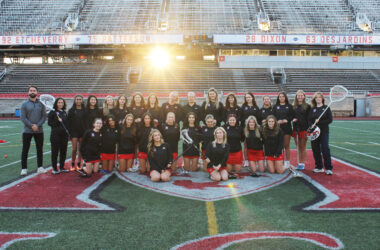
Sitting at his desk, in the basement of an empty building, the manager looks over a list of nine names. These nine names represent his best and most talented people. Though he earns a seven-figure salary, the manager’s office does not have any windows, is not particularly large, and is not in some modern high-rise. Baseball managers sit in the basement of the stadium, just down the corridor from the locker room. It’s an area more fit for a janitor’s office than for the head of a professional sports franchise. But he is not a coach; he’s a manager. There’s a difference.
A coach’s work is done mostly at practice, teaching his players the strategies he would like them to apply. Having coached hockey, I found myself frustrated by my inability to impact the outcome of various events in the game. The fact that my players were seven years old may have had something to do with their inability to execute. I was bothered by my lack of influence; I was limited to substitutions, speeches, and the occasional play-call.
In baseball, however, the manager can affect multiple aspects of any given play throughout the game. He can decide what pitch is thrown and where it’s aimed, whether the batter goes to the plate hacking away or taking the first pitch for a strike. It’s this ability to control so many aspects of the game that makes the position so appealing to me.
I’d love be in the manager’s chair, admiring my lineup card and listening to the sweet sound of batting practice. Crack. Crack. Crack. I could tell just by the sound whether he’d hit it on the screws or off the end of the barrel. I’d walk slowly through the clubhouse and up on the top step of the dugout, examining the field. Come game time, the dugout becomes the manager’s real office. But rather than sitting at a desk, I’d be up against the railing, analyzing and studying the game with intense concentration and admiration for all of its subtleties.
They say that sports are 90 per cent mental and 10 per cent physical, but no game is more cerebral than baseball. The manager must decipher what everyone on the field intends to do on a given pitch before it is thrown, and then decide what pitch to call. Every decision is influenced by statistics, psychology, intuition, experience, and wisdom. If the runner on first is about to attempt a stolen base, a curveball in the dirt could allow him to reach third, but a fastball on the outside corner would allow my catcher to gun him out at second. What separates baseball from other sports is the number of decisions that are made throughout a game. In a 10-pitch at-bat, the manager must decide 10 times whether to steal or hit and run, sacrifice bunt or suicide squeeze. The analysis involved in every decision is astounding.
Undoubtedly there are pressures that come with the position. But as an extremely competitive individual, I wouldn’t want these decisions to be in anyone’s hands but mine. I want to be able to say that we won or lost because of my decisions as a manager. After all, there’s another game tomorrow. Though some question the significance of a single game in a 162-game season, that’s what I love most about baseball: being at the ballpark day in and day out. When you’re truly passionate about something, that fire never dwindles. Not for a game. Not for an inning. Not for a pitch.








